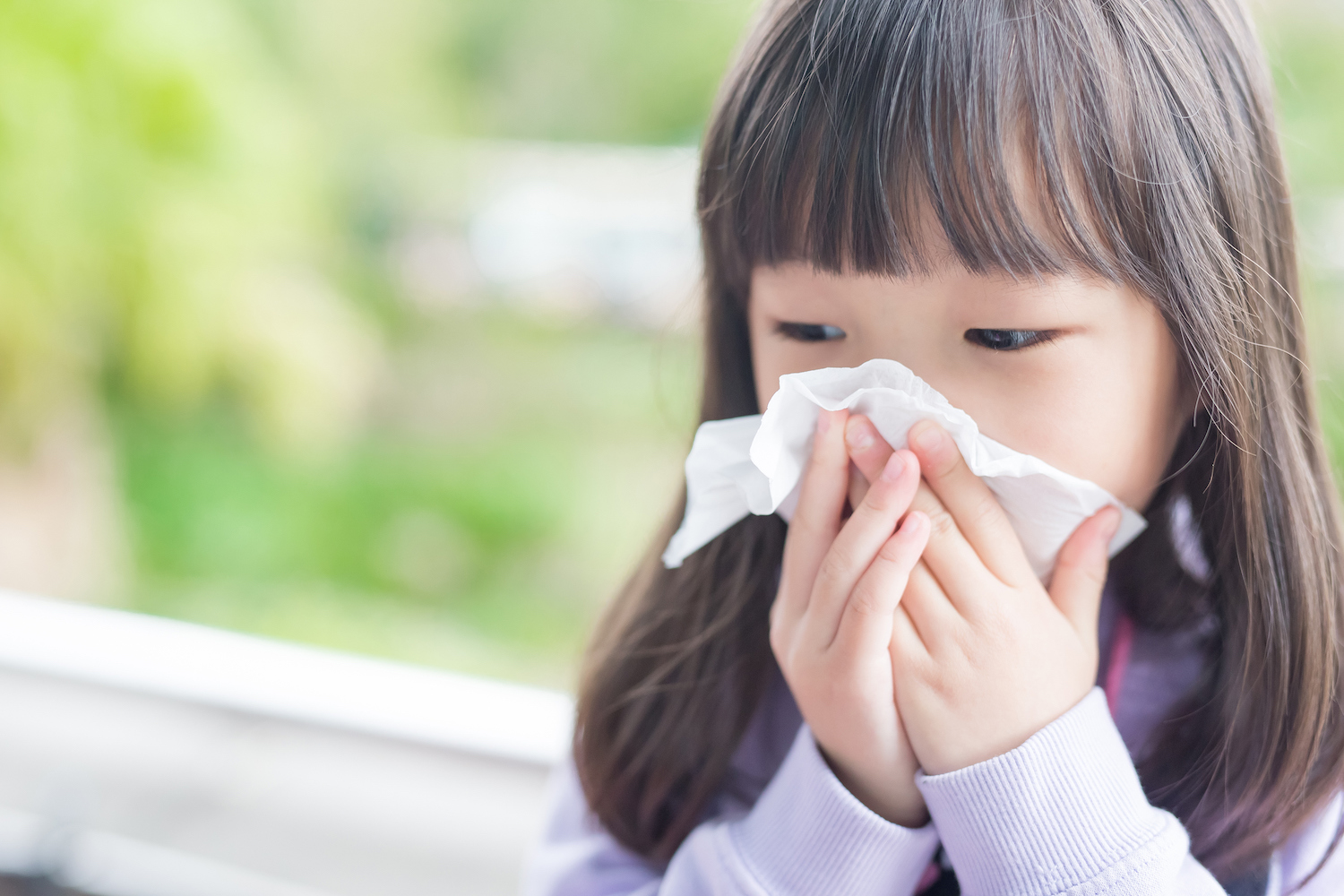Topics

Your child has started school or daycare and now he or she comes home with a runny nose, sneezing, and watery and itchy eyes. They say everyone in class is sneezing.
During school time, children are exposed to others who might have viral infections; and during the Fall season, ragweed pollen, a potent allergen, is abundant in the air. The level of mold spores also increases, particularly in places recently flooded.
Is it a pollen/mold allergy or a cold?
Both respiratory allergy reactions and colds can present with similar symptoms, and both can lead to more serious conditions, such as sinusitis or ear infections.
Colds
A cold is an infection commonly caused by a virus. Your child gets a cold from another person who has the virus. Symptoms appear a few days after breathing in germs or coming into direct contact with the infected person. Fever and tiredness might occur together with nasal congestion and a runny nose.
To prevent your children from getting a cold, teach them to frequently wash their hands, use hand sanitizer and cover their mouth when coughing or sneezing around others.
When your child has a cold, there are medications that help with the symptoms, such as acetaminophen for fever or nasal saline for a runny nose. Good rest and nutrition are important for your child to recover. Check with your doctor if symptoms are severe or do not improve within a few days.
Allergies
Allergic symptoms occur as a reaction when your child is exposed to an allergen. They are noted almost immediately. During this exposure, the nose, throat, and often the skin or eyes, become itchy and inflamed.
Allergies are not contagious. If there is fever, it is most likely an infection. Fall allergy symptoms usually last for the season or as long as the pollen is in the air. In Houston, October usually has the highest ragweed pollen counts.
Some of the most common allergens include pollen, molds, dust mites, animal dander and cockroaches. Blood or skin testing can help you identify your child’s allergies. Consult with your doctor about treatments for your child’s allergy that would reduce their symptoms and make the most of their school time for learning and fun.


